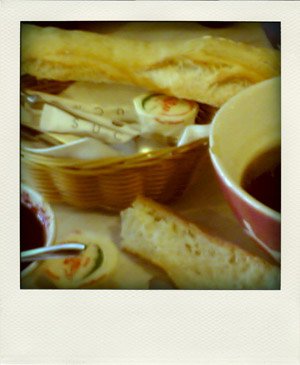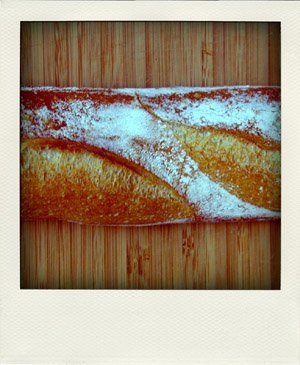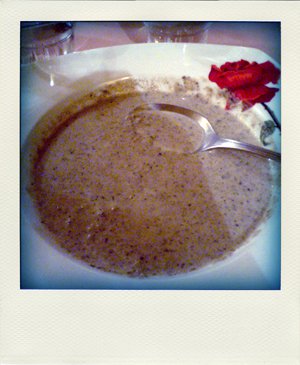
This is part of a series on French idiomatic expressions that relate to food. Read the introductory Edible Idiom post, and browse the list of French idioms featured so far.
This week’s idiom is, “Ecrire des tartines.”
Literally translated as, “writing tartines” (a tartine is a slice of bread topped with some sort of spread, such as butter or jam), it means writing reams, or being unnecessarily wordy.
Example: “J’étais surprise que sa lettre soit si courte ; d’habitude, il m’écrit des tartines.” “I was surprised his letter was so short; he usually writes me tartines.”
Listen to the idiom and example read aloud:
This colloquial expression can also appear in the singular (“écrire une tartine”) and is derived from the 18th-century journalists’ slang, in which une tartine was a very long (and, it is implied, boring) article or speech. A rather self-explanatory image; I always picture the writer or speaker fastidiously buttering a long piece of split baguette.






